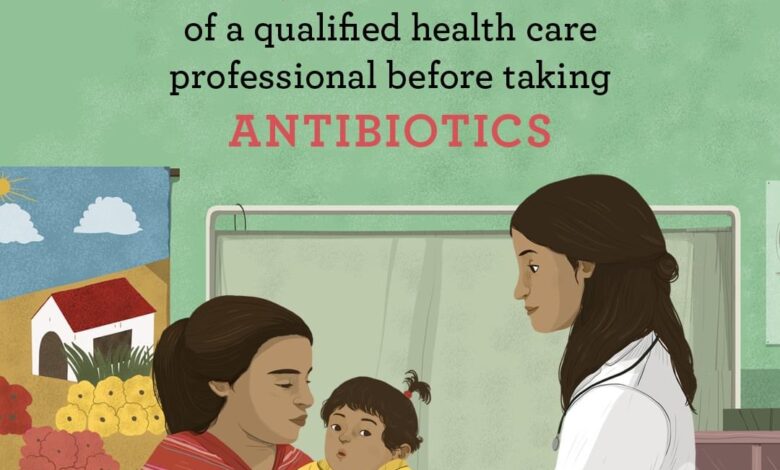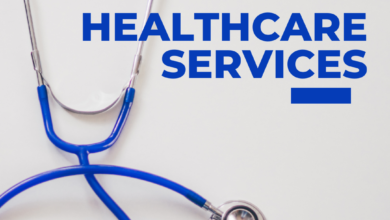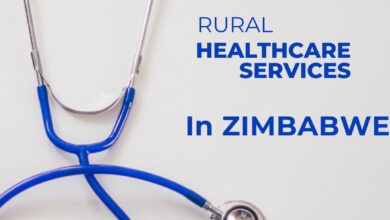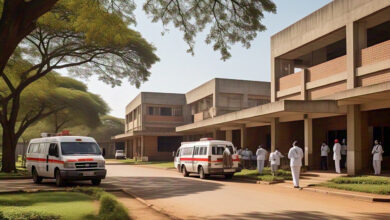Anti-microbial Resistance for Public Health in Zimbabwe

The Threat of Anti-microbial Resistance
Anti-microbial resistance (AMR) is a growing public health concern worldwide and Zimbabwe is no exception. AMR occurs when microorganisms, such as bacteria, viruses, and fungi, evolve resistance to anti-microbial drugs like antibiotics, antivirals, and antifungals, making these drugs less effective and potentially leading to untreatable infections.
In Zimbabwe, data from a reputable laboratory showed an increasing trend in resistance to common antibiotics. In 2011, 73.9% of the isolates were resistant to amoxicillin, and this rose to 74.6% in 2015. Currently, in Africa it is projected that millions of Africans may succumb to AMR by 2050.
Impact of AMR on Public Health in Zimbabwe
The implications of AMR for public health in Zimbabwe are alarming. Resistance to commonly used antibiotics increases hospital admission times due to prolonged illness duration. This necessitates additional tests and requires more expensive drugs for treatment. This results in higher costs for patients, their families and the nation’s healthcare system.
Moreover, the increasing resistance rates to last-line antibiotics are highly concerning as they may lead to the spread of life-threatening infections, especially in hospitals.
Addressing the Challenge
Addressing antimicrobial resistance (AMR) in Zimbabwe requires a multifaceted approach that includes public education, proper use of antibiotics, surveillance and the development of robust health systems. Here are some steps that can be taken to address this issue:
Firstly, public education is vital. The first step is to educate the public about the dangers of misuse of antibiotics. This includes not completing the full course of antibiotics when prescribed and not using antibiotics without a valid medical reason. This is crucial because misuse of antibiotics can lead to the development of drug-resistant bacteria.
Secondly, proper use of antibiotics will help. Doctors should prescribe antibiotics with proper medical indication for their use and not give into pressure from the patients. This is important to ensure that antibiotics are used only when necessary and in the correct dosage.
Dealing with the challenge to improve public health in Zimbabwe.
Thirdly, implementing a robust surveillance system is crucial to monitor and evaluate emerging patterns and trends of AMR in Zimbabwe. This helps in better prevention and management of AMR. With funding from the Fleming Fund, at least 14 laboratories across Zimbabwe were capacitated to generate AMR surveillance data.
Also, developing robust health systems is important. WHO is supporting Zimbabwe in setting up strong AMR governance structures. Setting up National Hospital Acquired Infection surveillance is essential. Providing a legal framework for One Health work in Zimbabwe and supporting the use of vaccines such as typhoid vaccines to reduce antibiotic use is also necessary. Reviewing National Infection Prevention and Control (IPC) guidelines will help improve delivery of sound public health in Zimbabwe.
Additionally, the use of vaccines will go a long way. Vaccines can help to prevent antibiotic resistance. For instance, Zimbabwe has been successful in using vaccines to prevent outbreaks of drug-resistant cholera and typhoid.
Furthermore, educating the public about the proper use of antibiotics is also requisite. Misuse and overuse of antibiotics contribute significantly to the development of AMR. Hence, Zimbabweans need to adhere to the full course of treatment when prescribed by doctors. This will go a long way to boost public health in Zimbabwe.
Moreover, doctors should prescribe antibiotics only when medically indicated and not give in to pressure from patients.
Conclusion
Tackling AMR is vital for safeguarding public health in Zimbabwe. Through robust surveillance, public education and responsible prescribing practices, the country can address this growing health threat and ensure the continued effectiveness of life-saving antimicrobial drugs. This will overall improve the nation’s health sector.





